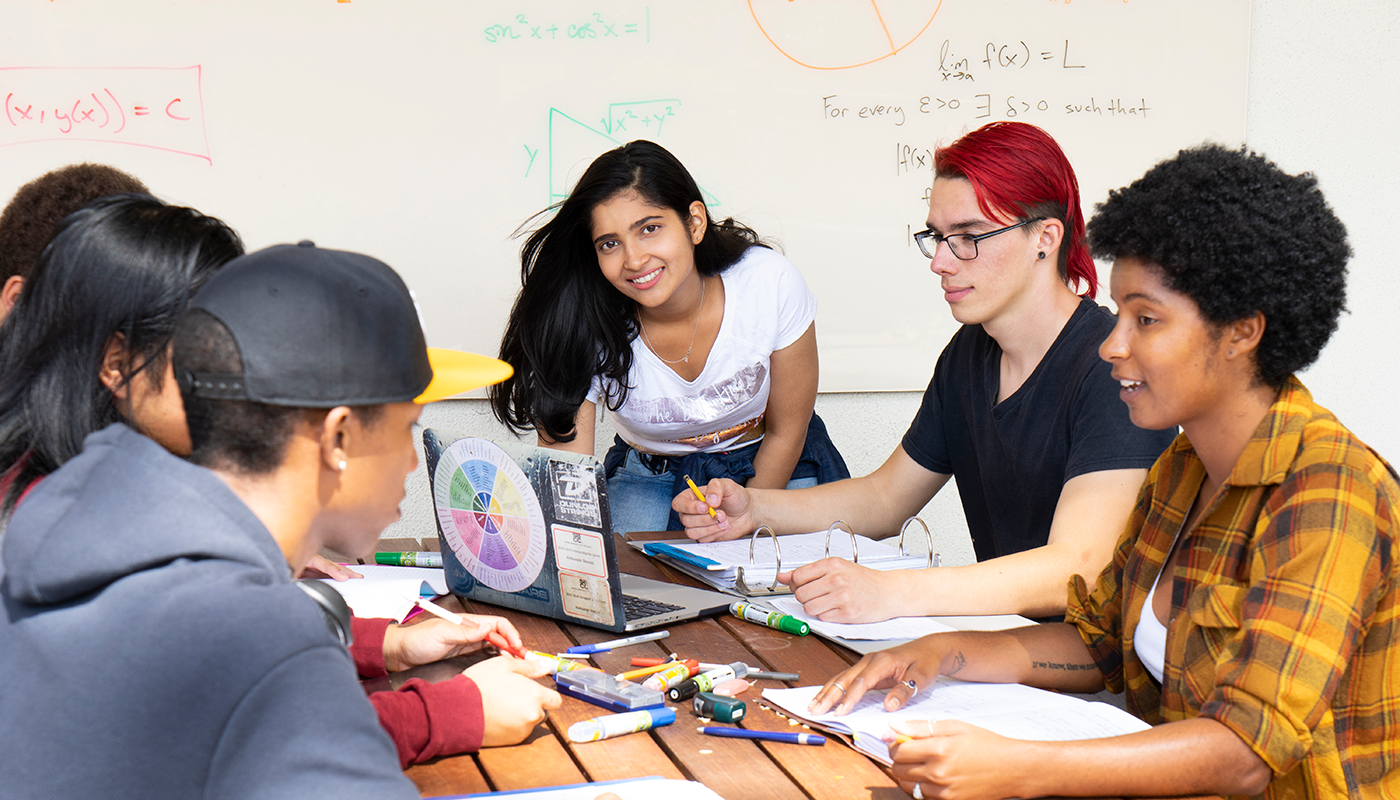
Mathematics
About Our Program
Department Office: IDC 317, ext. 4140
Faculty and staff
Math Tutorial Lab
Flowchart of mathematics courses
Math Placement Guide
Math Course Instructional Methods
Course descriptions (SBCC catalog)
Course COR's
Degrees and degree requirements
Program Description
Each year, the list of careers demanding familiarity with basic mathematical skills grows. Environmental sciences, architecture, business management, nursing, dentistry, computer programming, electronics, forestry management, psychology and photography represent only a small sample from this list.
The Mathematics Department at Santa Barbara City College offers a broad curriculum to meet the needs of students with a wide variety of goals. It offers a standard college-level sequence in single and multivariable calculus, analytic geometry, linear algebra and ordinary differential equations for freshman and sophomore students who plan to transfer to four-year colleges or universities. In addition, the department offers courses in statistics and calculus for Business, Biological Sciences and Social Science majors, as well as courses in support of Career Technical Education programs.
The department also serves students who need to improve their basic skills in mathematics, as well as students who are returning to formal education after a period away from school. The department provides a complete precalculus program, including intermediate algebra, college algebra and trigonometry to review old or gain new mathematical skills.
In all of the department’s course offerings, there is a strong commitment to training the student in analytical and logical thinking skills as part of a problem-solving attitude which can be transferred outside the formal educational setting.
Program Student Learning Outcomes
-
Use symbolic, graphical, numerical and written representations to describe mathematical ideas.
-
Use mathematical reasoning to solve problems and apply a variety of problem-solving approaches to find and interpret solutions.
-
Use mathematics to model and solve problems in the sciences.
-
Use appropriate technology to enhance mathematical thinking and understanding, solve mathematical problems, and interpret their results.
-
Use the language and notation of differential and integral calculus correctly and use appropriate style and format in written work.
-
Recognize the roles of definitions, axioms and theorems, and identify and construct valid deductive arguments.